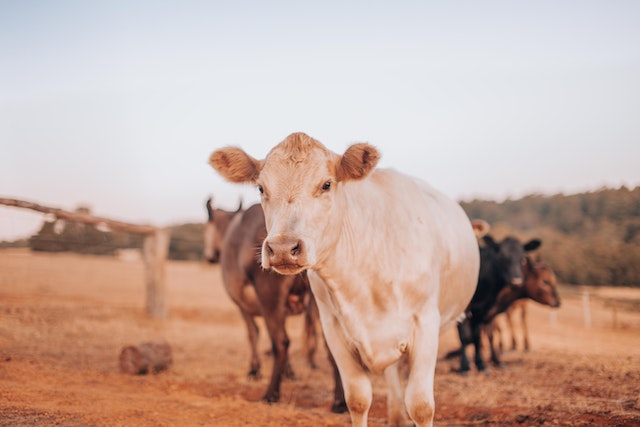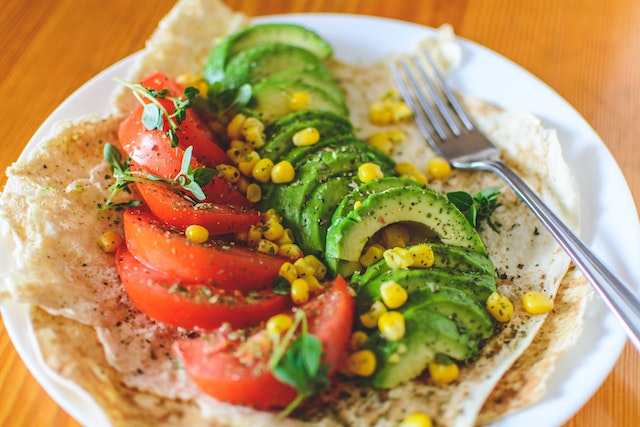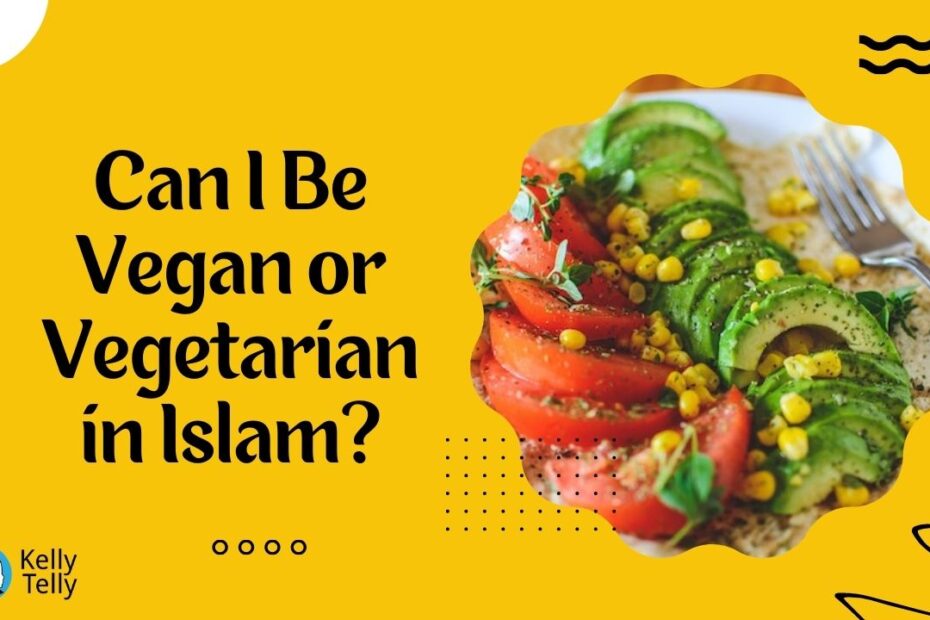Disclaimer: I do not have a formal tertiary education in Islam. The highest Islamic education I’ve been is going to Islamic secondary school. I’m just an average practicing Muslim in Malaysia, with thoughts that I would like to share, as I believe it would benefit the ones reading. Feedbacks & criticisms onto my content & delivery are much welcomed.
Becoming vegan & vegetarian at this time & age, has been one of the things that you would want to do to sustainably help the world.
It wasn’t always the case. Prior to this ‘woke’ era, the practice was used to be limited to certain people, such as people with certain food allergies, and the majority of Hindus.
My point is, it’s not the newest practice in the world. It’s been here since the 9th century BCE, and people practice it for all sorts of reason; religious, cultural, environmental, even purely personal or aesthetic reasons.
Nevertheless, at the moment, veganism & vegetarianism are highly driven as a way to fight consumerism & capitalism that is wreaking havoc on the world’s flora & fauna. Meaning, they’re used as weapons to fight the negative consequences of flawed economical structure such as overconsumption, animal cruelty, deforestation, etc.

This motivates a lot of people to go vegan, or at least vegetarian. Muslims included. And that is what we’re going to talk about today.
So can Muslims be vegan? Are we allowed to?
1. The world, by default, is for us to gain benefit from it.
One funny thing to me is, Islam is always perceived as this religion which forbids anything and everything. The truth is, Islam holds boundaries in broad aspects in life, and those handful boundaries in terms of ‘don’ts’ are the ones who keep getting the spotlight, distracting from the fact that Islam literally tell you to experience everything that you possibly can to the fullest.
It’s not a morally wrong thing to use the world for our benefit. In fact, that is what you’re supposed to do. You don’t have to feel bad for it.
Thus, in terms of food, except for what has already been told no, Islam literally tells you to eat whatever you want.
Do you not see that Allah has subjected to you whatever is in the earth as well as the ships ˹that˺ sail through the sea by His command? He keeps the sky from falling down on the earth except by His permission. Surely Allah is Ever Gracious and Most Merciful to humanity. – Quran, Surah Al-Hajj 22:65
2. This includes animals.

And it is He who subjected the sea for you to eat from it tender meat and to extract from it ornaments which you wear. And you see the ships plowing through it, and [He subjected it] that you may seek of His bounty; and perhaps you will be grateful. – Quran, Surah An-Nahl 16:14
O believers! Honour your obligations. All grazing livestock has been made lawful to you—except what is hereby announced to you and hunting while on pilgrimage. Indeed, Allah commands what He wills. – Quran, Surah Al-Ma’idah 5:1
Allah has allowed us to reap the benefits that we can from animals. Eating them is included, but also riding them, harvesting them as produce, using them as protection, and keeping them as pets. As long as it’s within the guidelines, feel free to do whatever we can.
Examples of guidelines that humans need to abide to:
- We cannot let greed rule (i.e. pursuing every animal that we can just because).
- We cannot destroy the environment in doing so.
- We cannot hunt animal just for fun.
- We must be merciful to them in our care (e.g. feed them well, store them in livable shelter).
- If we must kill them, kill them in a way that causes the least pain (there’s even very specific details on how to do this properly, for both parties to benefit).
There are a lot of things to consider before you even lay your hand on an animal.
“But you kill them to eat! How is that merciful?”
Remember, just like vegan & vegetarianism has existed since long time ago, the practice of eating meat has also existed since then. Including the practice of eating bugs (which actually is generally halal in Islam, for your information), and literally any eating practice that has existed since dawn of time. Weird or not, morally okay or not to you, they have existed.
The role of Islam is not to say this practice is haram or that practice is haram. The role of Islam is simply to regulate all of those eating practices in a way that will bring the most benefit to both parties; the human and the nature at whole. The regulations are meant to keep humans as healthy as possible. Not just physically, but also mentally, emotionally & spiritually.
The negative consequences of consumerism & capitalism are essentially what happen when people do not observe these laws. Corporates literally would go for a killing spree for people to eat lavishly. The wellbeing of the nature is disregarded.
But if we were to abandon the world totally, we will not be able to survive. We do need to eat, and shelter, and stuff. Thus, Islam lay the guidelines for us to consume the world that sustains us, & preserve the order of the nature.
In simple words, leave the animals alone. Only & only when you are desperate for your needs, then you need to do what you need to do.
With that being said, let’s get back to the question. Can Muslims be vegan? I believe we can. Just like how a Christian can be vegan. Just like how an atheist can be vegan.

Because it’s less about what Islam or Allah says, and more about our own personal choices. Technically, Islam didn’t say anything, forbidden or not, about going vegan. Islam only lays out the guidelines on our consuming behaviors. All we need to do is to comply with the guidelines. That’s it. Nothing more, nothing less.
There you go. I believe your questions has been answered.
But I also believe that some of you might not be satisfied.
“Nothing more, nothing less? That’s it? How come? With all of the clear, devastating repercussion, clearly from human greed? How can we just accept sticking to the basic? There must be something more that we can do!”
Yes, as I said before, veganism & vegetarianism are utilized as a weapon to fight these repercussions & remedy the situation.
And I also agree, that in this era where doom seems to be everywhere, we need that extra effort to turn the table around.
So, let’s ask the real question; how does Islam combat the negative effects of consumerism & capitalism?
Because it’s not that because we ate a burger instead of a salad, that the world becomes so terrible.
Being vegan, although stems from very good intention, barely even touched the surface of the issue. While it acts as a band-aid that covers the wound and prevents it from infection, it does not address the root cause, the very ailment that we’re looking for to heal the wound itself.
The root cause, is greed.
So, what does Islam teaches us about managing greed?
1. Taqwa (God-conciousness).

God ultimately owns everything. Everything in this world is temporary, so don’t even bother chasing every single thing you want. The heaven will be the ultimate place where you can get everything you want.
We all know this stuff.
But there’s a difference between knowing them, truly believing them, and acting on them in a way that your behaviors are centered around them.
In order to be God-conscious, you need to learn about God & believe about it to a certain extent. Everyone’s journey is different, so I’m not going to comment anything about this.
But what Islam stresses is that, when you are conscious of God in every single thing that you do, you elevate yourself to a status, where your temptation & motivation will be reduced to overly chase worldly possessions.
One of the criteria of God-consciousness is being content with having less. I.e., one acknowledges that is no need to pursue anything more than you need it. By internalizing this, it will direct our consuming behavior in a healthy way.
2. Practical practices to manage the temptation.
(the word ‘practical practices’ is redundant, but you know what I mean.)
Of course, God-consciousness can reduce the temptation & motivation to overly chase worldly possessions.
But it doesn’t take away the fact that we are humans. Those temptations are nothing more than human instinct guiding us to survive. No matter how we try to diminish it, it will never go away. In fact, Islam does not tell you to deny or throw this instinct away. That will only lead to other problems; problems just as big as greed, just on the other side of the spectrum.
So, to further add onto this, Islam actually has a few sets of practices that could significantly help us to not be consumed by the primal instinct of wanting things, let alone being consumed by greed.
We’re talking about actionable actions now (again, the word ‘actionable actions’ may be redundant, but you know what I mean), not just mental or spiritual exercises. And in this article, I’m only going to talk about 2 practices which are obligatory.
Firstly, fasting. Fasting reins your temptation by training yourself to hold yourself from getting what you want or like.
I’m not talking about the cute, Western way of intermittent fasting. Because fasting in Islam is a whole lotta more than a healthy thing to do (although it is undeniably marvelous to one’s health).
The aim of fasting is God-consciousness.
O believers! Fasting is prescribed for you—as it was for those before you—so perhaps you will become mindful (conscious) ˹of Allah˺. – Quran, Al-Baqarah 2:183
The way it does this is by training you to hold yourself from things that you are allowed in the first place. For half a day, you abstain not just from food, but sex, and your bad habits. Only after half a day, the restraint is over. Totally doable. When you have done so in Ramadan for 30 days consecutively, it would engrain the necessary mindsets & habits, and you’ll get out of Ramadan as a better person.
Secondly, zakat. This is the portion of your wealth that you must give away. It’s basically taxes. We all know how it works. Possibly not our most favourite thing in the world. But we do know that it’s important.
But in Islam, it is so highly emphasized, that it is one of the five pillars of Islam. I.e., you may not be considered as a Muslim until you fulfil this obligation.
Zakat reins your temptation by training yourself to give out what you already have & like. I’m not talking about charity here, where it’s highly encouraged, nevertheless optional. It’s taxes, you have to give it out. Even if you don’t like it. Even if you don’t want it.
That conscious act of giving out a portion of what is genuinely yours to others, regardless of your feelings. That is what will train you. That is what will knock your temptation to its place; things are never meant to be truly yours, no matter how bad you want it to be.

I believe, after what I’ve explained, we can see now, vegan & vegetarianism are a practice in of itself, independent of Islam. Whether you choose to do it or not, it is only a dietary practice of yours, which does not correlate with your faith.
It’s part of our effort to fight badness in this world, in which we’re already struggling to do it the best that we can. Nevertheless, we’re doing it, from small steps, to big steps. Which includes to be more conscious what we eat, and consume in general.
What you choose is your choice. Just do not make haram of what is halal.
That’s it.
O believers! Do not forbid the good things which Allah has made lawful for you, and do not transgress. Indeed, Allah does not like transgressors. – Quran, Al-Ma’idah 5:87

